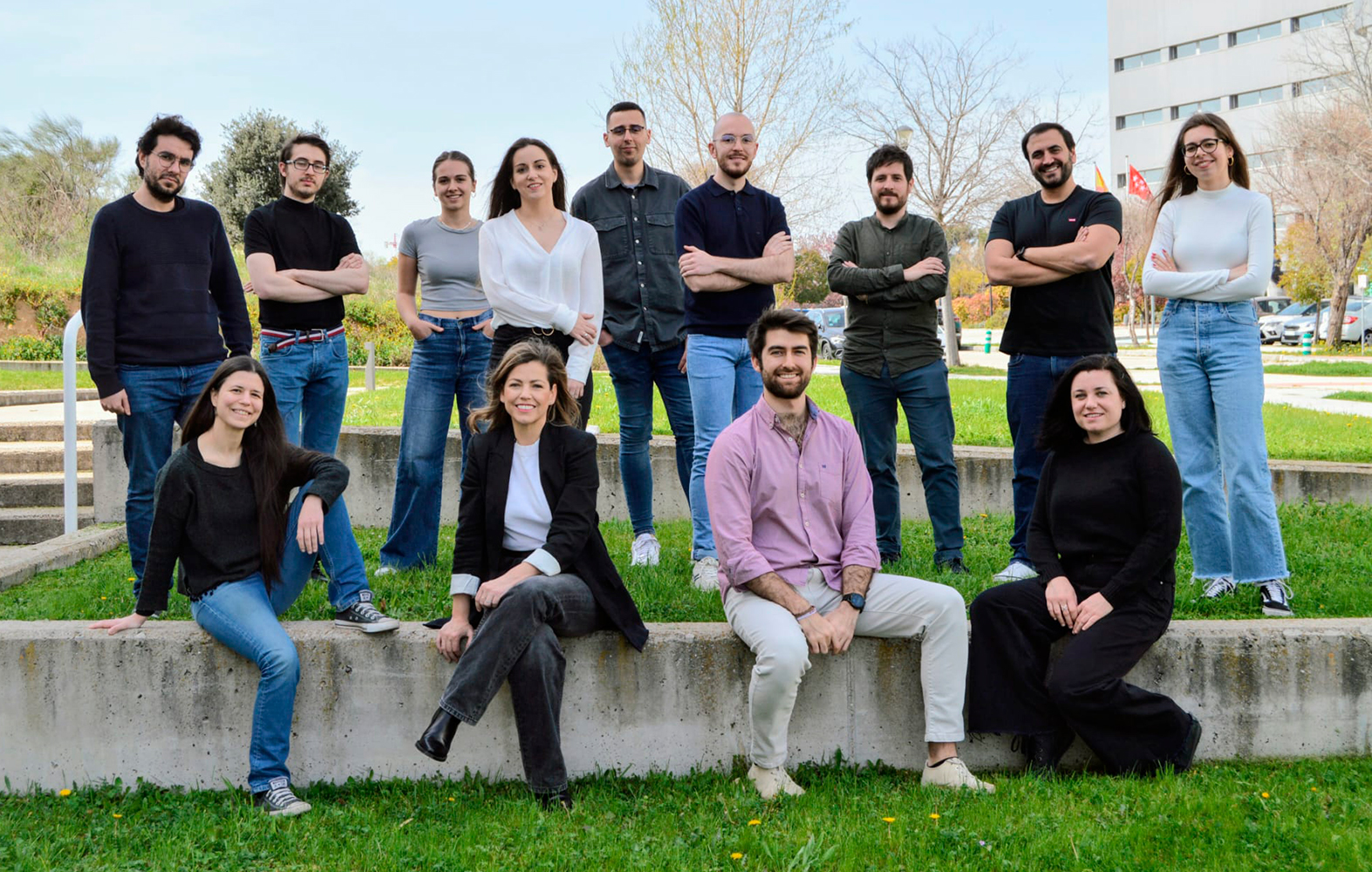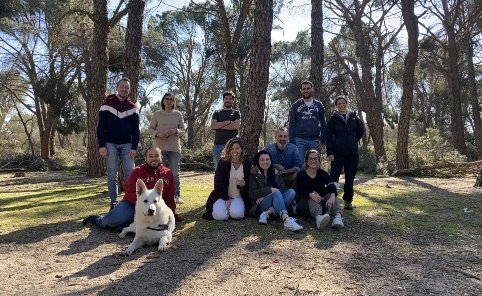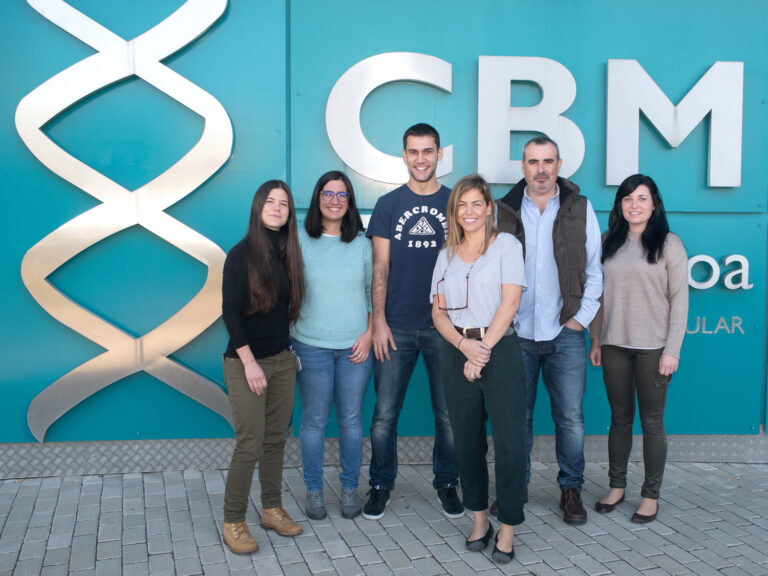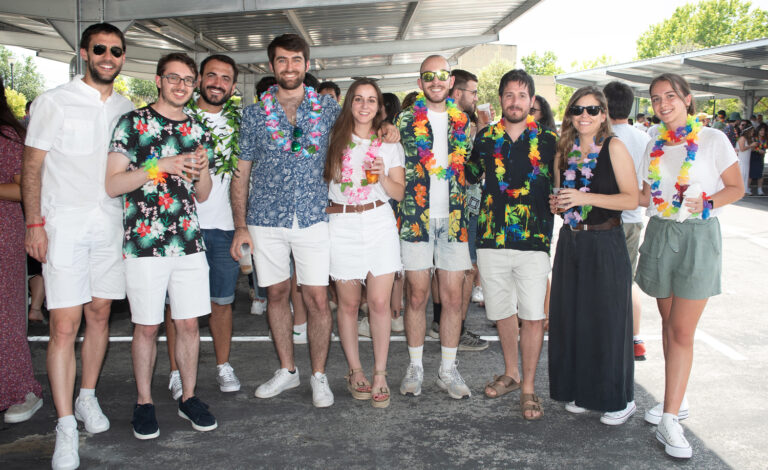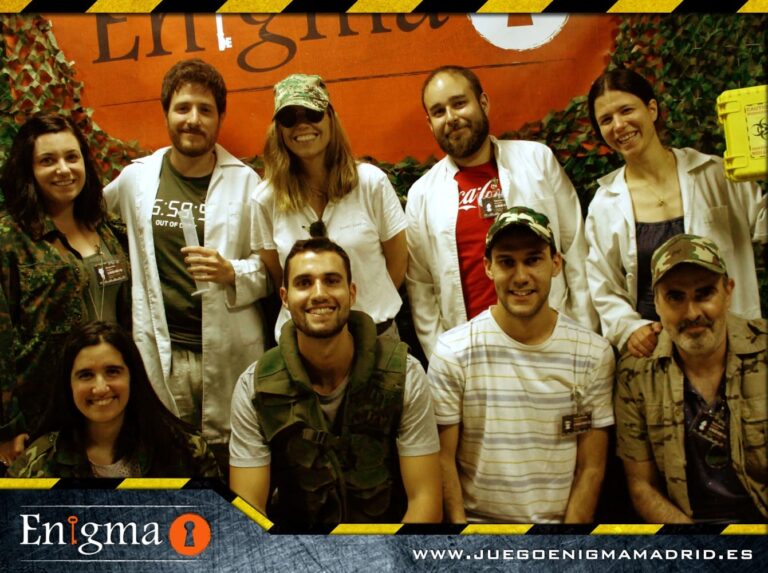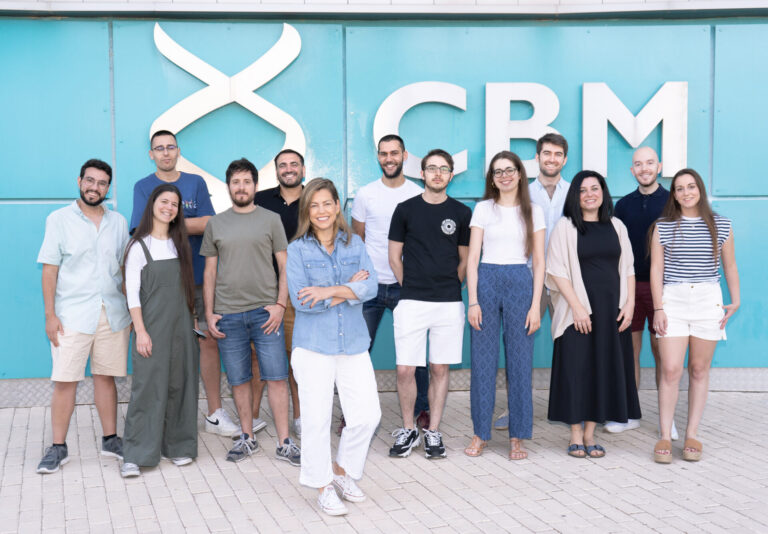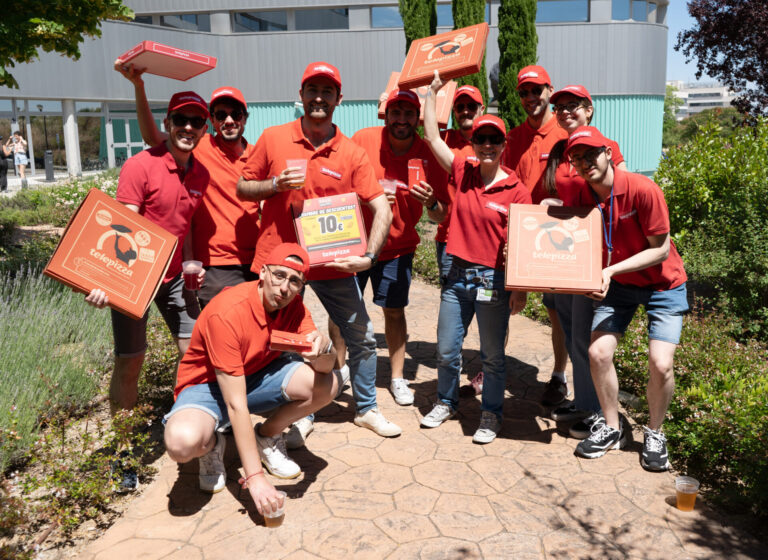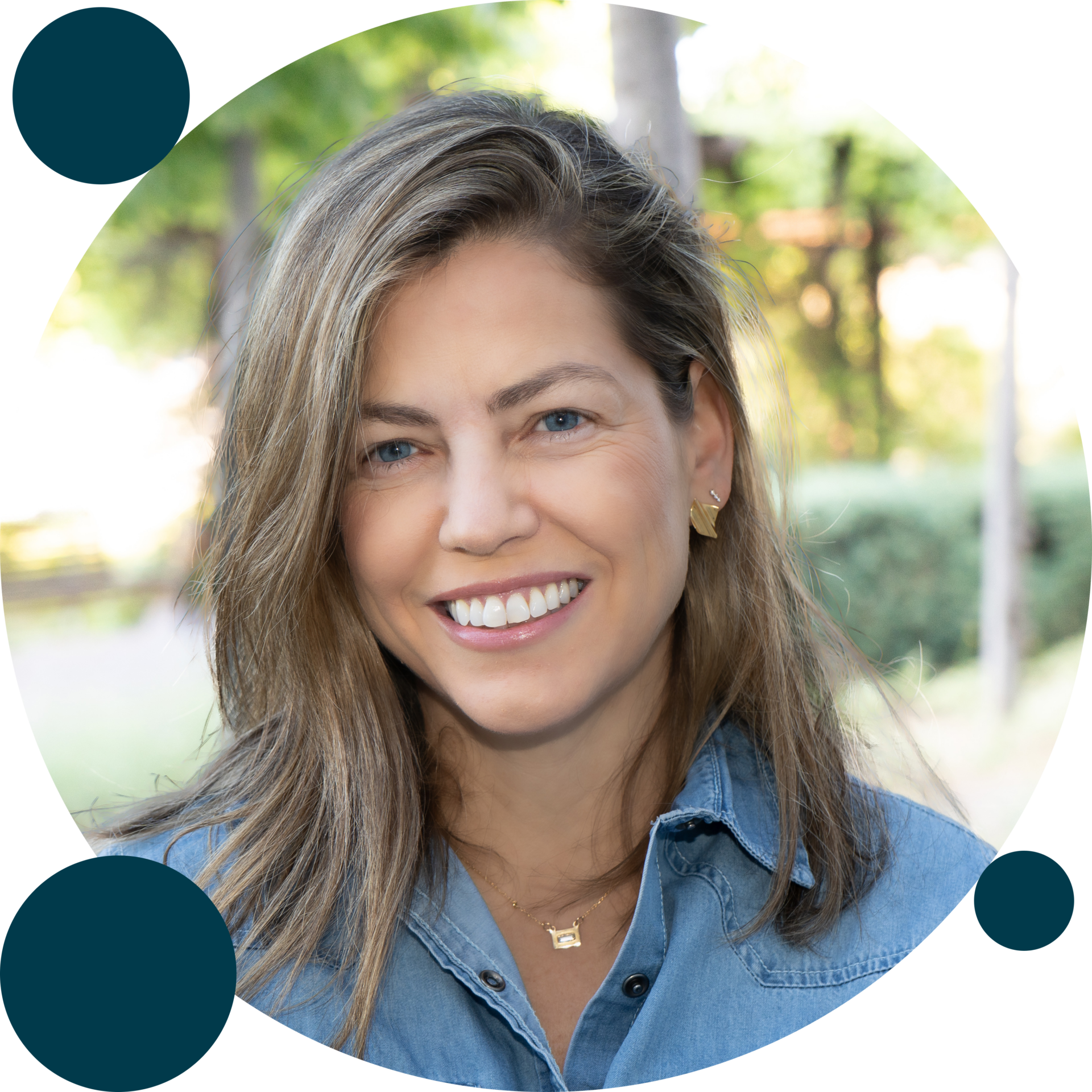
Dr. Mittelbrunn received the degree of Doctor in Biomedicine, Biochemistry and Molecular Biology from the School of Medicine at the Universidad Autónoma de Madrid (UAM) in 2006, and performed postdoctoral work at Spanish National Center for Cardiovascular Research (CNIC) (Madrid, Spain) from 2007 to 2016. Since 2017, she is Group Leader of the Immunometabolism& Inflammation Laboratory at the Molecular Biology Center (Madrid). Since 2021, she is Research Scientist of the Spanish Research Council (CSIC).
Among her original contributions are the demonstration that the deterioration of immune system function with aging not only compromises the response to infection, cancer, vaccination, or predisposes to autoimmunity but also increases the risk for cardiovascular, metabolic, and cognitive decline, thereby placing the immune system as a controller of healthy aging. Dr. Mittelbrunn has contributed to decoding the molecular mechanisms by which aged T cells contribute to inflammaging and age-related diseases. Additionally, she has proposed new therapeutic targets to delay age-related multimorbidity and to reverse aortic aneurysms, thus preventing sudden death due to aortic dissections.
She has obtained funding from the major European and Spanish funding organizations, including an European Research Council Starting Grant in 2016, and Consolidator Grant in 2022.
For her scientific achievements, she has been awarded with Doctoral thesis Extraordinary Prize (2006), LÓREAL UNESCO for Women in Science (2015), BANCO SABADELL AWARD for Biomedical Research (2022), and Royal Spanish Academia of Science for young researchers among others. Since 2024, she is Visiting Professor at the Columbia Center fo Translation Immunology and Columbia Center for Human Longevity, Columbia University.

Elisa, a dedicated researcher and Assistant Professor at Universidad Autónoma de Madrid (UAM), has made significant contributions to the field of hair biology, epigenetics, and T cell aging. Her academic journey began with a PhD at UAM, where she focused on transiently stimulating hair follicle stem cells through the induction of low levels of endogenous ROS.
Intrigued by epigenetics, Elisa pursued postdoctoral research at the University of Durham, investigating epigenetic changes in dermal papilla cells during the transition from in vivo systems to in vitro bidimensional cultures.
Currently, as a member of the Immunometabolism and Inflammation laboratory at Centro de Biología Molecular Severo Ochoa, Elisa explores epigenetic alterations in hair follicle stem cells influenced by T cells, particularly in the context of aging. She also holds a position as an Assistant Professor at UAM, balancing teaching responsibilities while advancing her research goals.
Her research projects focus on precision nutritional strategies to rejuvenate the immune system affected by age, obesity, or chemotherapy, as well as exploring immunometabolism to delay skin aging. Additionally, Elisa has secured research contracts with pharmaceutical companies, including Clinuvel, Tyris Therapeutics, and Industrial Farmacéutica Cantabria.
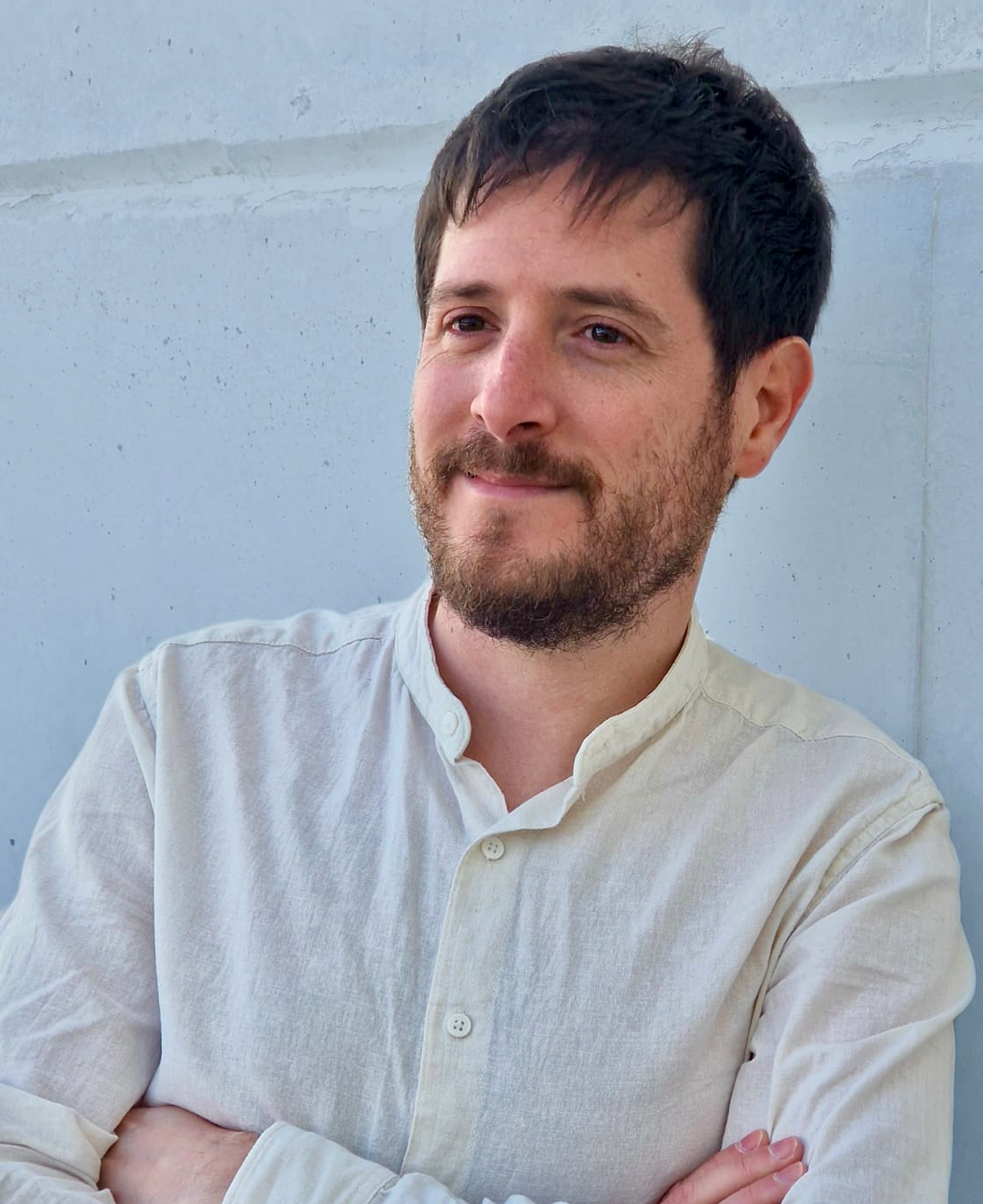
Enrique, a dedicated PhD and Postdoctoral Fellow, has a rich academic background that showcases his expertise in Molecular Biomedicine. His doctoral research at CBMSO delved into the intricate mechanisms triggering neurodegeneration in lysosomal storage disorders. Notably, Enrique elucidated the crucial role of Cathepsin B release in both Purkinje cells and microglia, significantly contributing to our understanding of these disorders.
In 2015, he expanded his research horizons by joining Barts Cancer Institute (QMUL) in London (UK), where he explored the involvement of the proton channel HVCN1 in neutrophil function during inflammatory responses and in mouse models of Alzheimer’s disease. This international experience broadened his perspective and added valuable insights to his research repertoire.
In 2018, Enrique embarked on a new chapter by joining the Mittelbrunn lab through the prestigious Juan de la Cierva-Incorporación fellowship. In this role, he is at the forefront of investigating the intricate interplay between the adaptive and innate immune systems, unraveling their regulation of systemic aging and senescence in old mice. Enrique’s journey in academia reflects a passion for unraveling complex biological phenomena and contributing to the forefront of scientific knowledge.
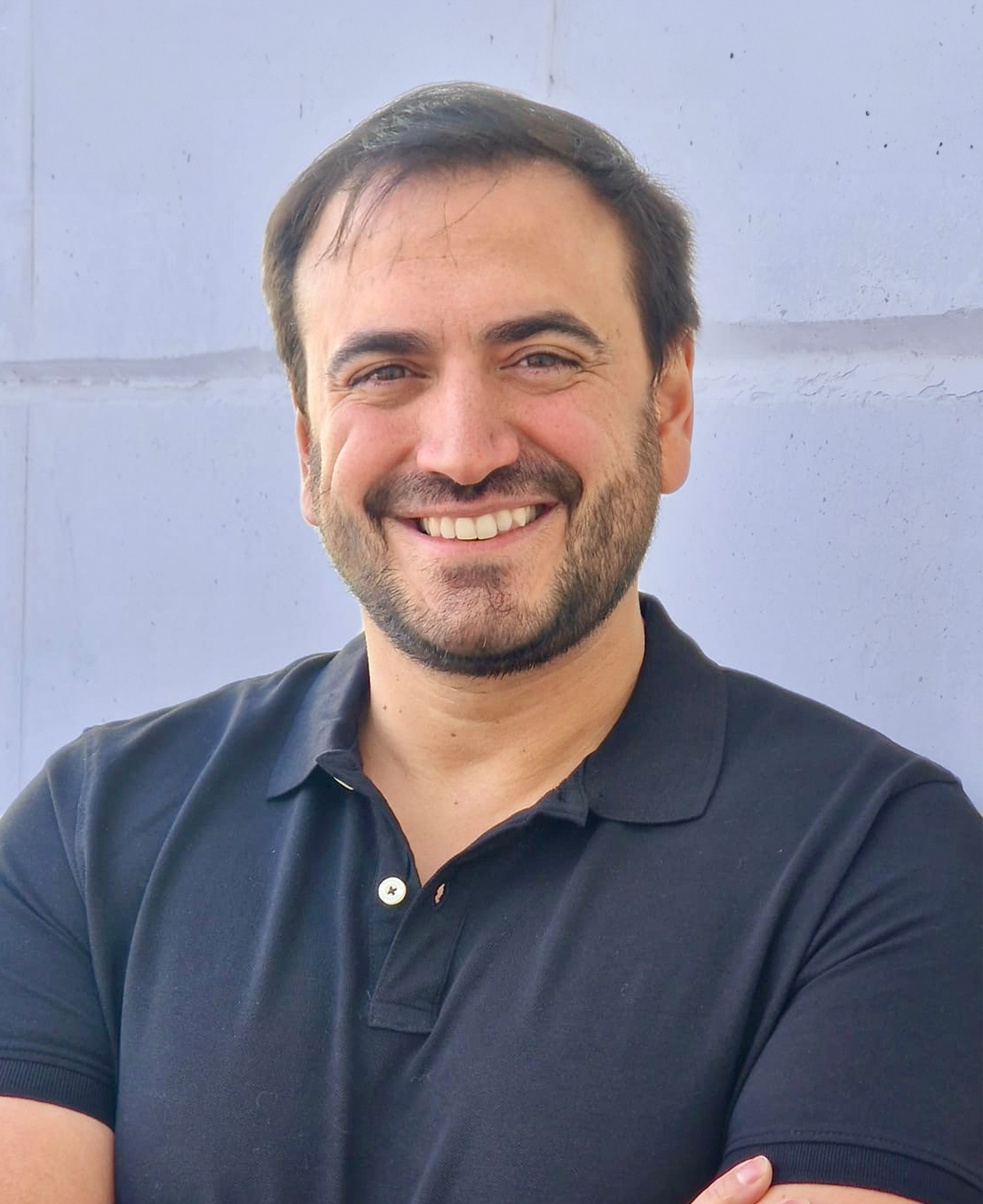
Isaac is a talented and committed senior postdoctoral researcher expert in neuroimmunology and inflammation. During his doctoral tenure at Universitat Autonoma de Barcelona (UAB), he concentrated on investigating inflammatory resolution programs related to neurodegenerative diseases and traumatic spinal cord injuries.
In 2017, he relocated to the UK to join the renowned King’s College London. There, supported by an MRC/ERA-NET-Neuron fellowship, he delved into the interactions between extracellular matrix and microglial cells following central nervous system insults. Additionally, amidst the COVID-19 pandemic, his invaluable expertise in the innate immune system led him to participate in an international project led by Prof Adrian Hayday (Crick Institute). The project aimed to assess how SARS-CoV-2 affects the immune system and identify early risk-based patient stratification markers.
In his subsequent career move, Isaac, having been awarded the prestigious Juan de la Cierva Incorporacion fellowship, joined the Immunometabolism and Inflammation laboratory at CBMSO in 2022. His research project is centered on studying the impact of immune cell aging in neurodegenerative diseases, with the ultimate goal of developing therapeutic interventions targeting the immune system. Beyond his research endeavors, Isaac is actively involved in teaching at the Department of Molecular Biology at the Universidad Autónoma de Madrid.
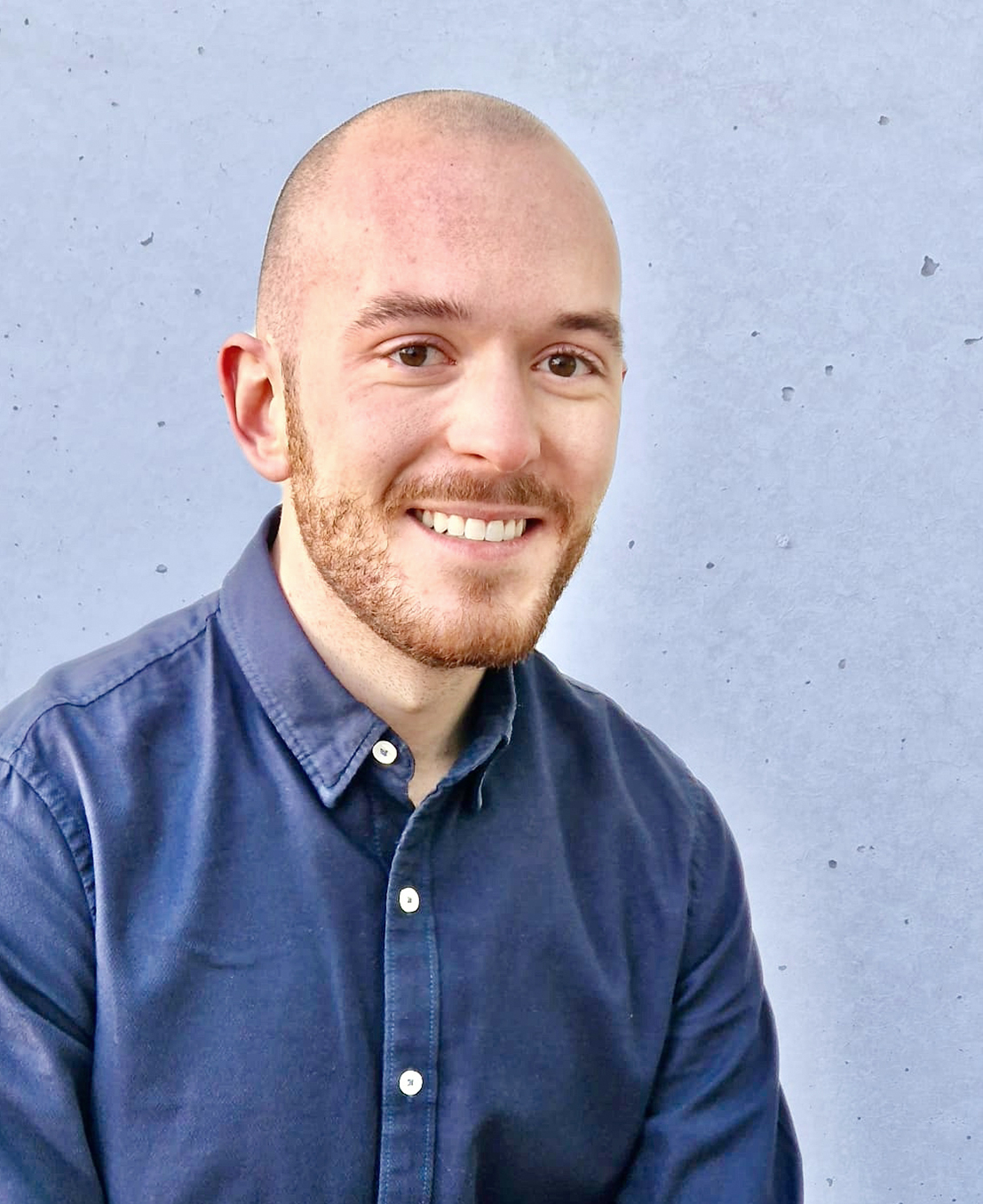
Manuel earned a Degree in Biochemistry and a Master’s degree in Pharmacological Research from the Universidad Autónoma de Madrid with a focus on unraveling the molecular mechanisms underlying human diseases. Inspired by an enlightening course in ‘’Microbiota and Health: Innovative Therapies’’ at the Universidad Internacional Menéndez Pelayo, Manuel embarked on the journey of doctoral studies with the support of a prestigious FPU grant (FPU19/02576). This academic pursuit unfolded within the Immunometabolism and Inflammation laboratory led by Dr. Maria Mittelbrunn at Centro de Biología Molecular Severo Ochoa in Madrid, Spain.
Manuel’s research endeavors are centered around exploring the intricate interplay between T cells, the intestine, and its microbiota in the context of age-related diseases. In addition to fulfilling research responsibilities, Manuel actively collaborates in the teaching activities in the Department of Molecular Biology at the Universidad Autónoma de Madrid, contributing to the academic community.
Throughout the Ph.D. journey, Manuel has had the invaluable opportunity to learn first-hand from eminent researchers in the fields of Immunology and microbiota, including Dr. Gabriel Nuñez and Dr. Naohiro Inohara at the University of Michigan in Ann Arbor, USA

Eva is a Research Laboratory Technician, brings over a decade of invaluable professional experience to laboratory environments. With expertise spanning a diverse range of routine and experimental laboratory procedures, instrumental techniques, record-keeping, inventory management, and equipment operation and maintenance, Eva is a highly skilled professional adept at handling various tasks associated with laboratory projects.
Her specialization in working with animal models and managing genetically modified organisms underscores her commitment to precision and excellence in scientific research. Notably, Eva’s contributions have played a pivotal role in several significant scientific publications, reflecting her dedication and impact in the field.
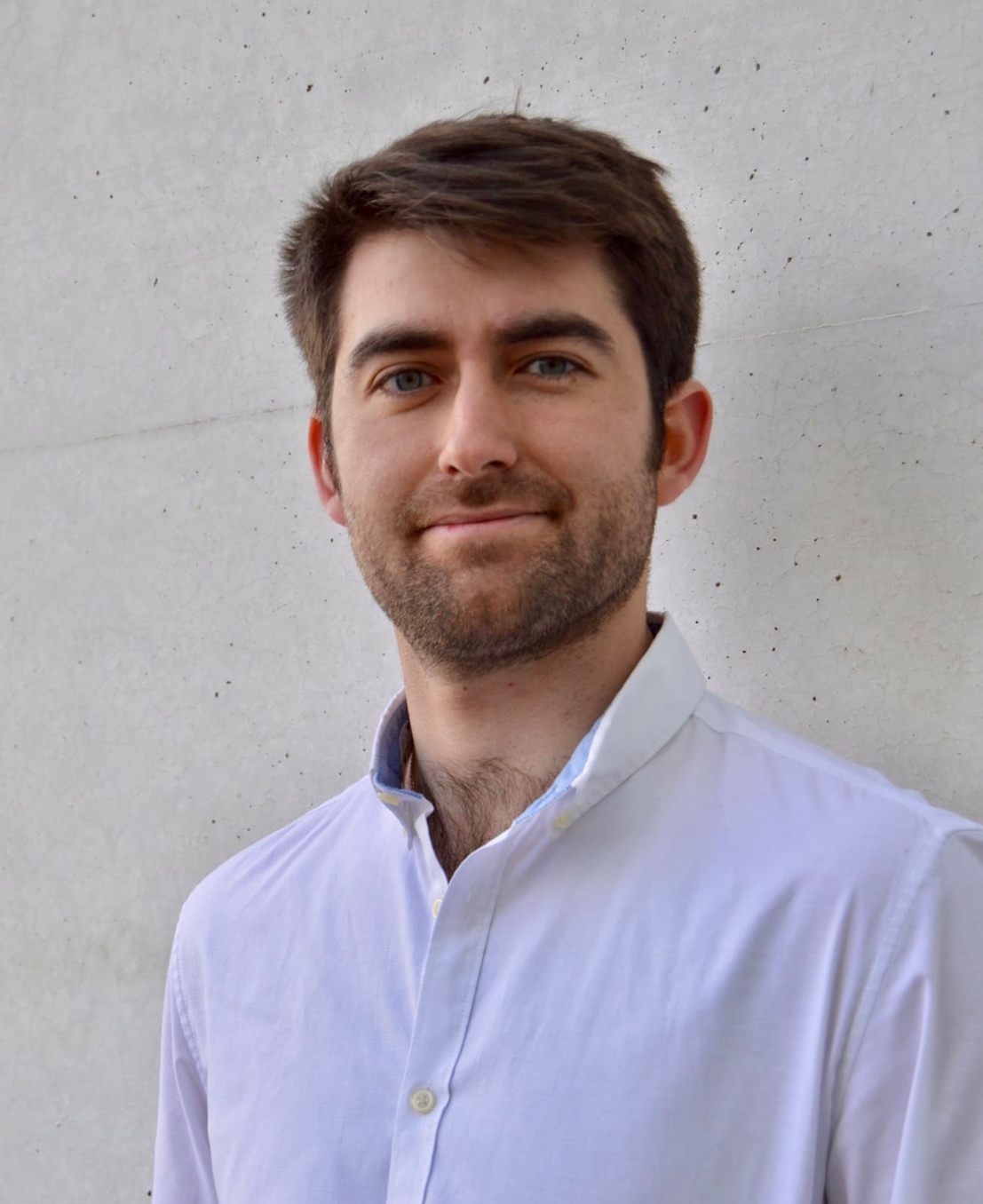
Jose Ignacio obtained a Degree in Biotechnology and a Degree in Pharmacy both from Universidad Francisco de Vitoria (Madrid, Spain). He also obtained a Master’s degree in Humanities and Philosophy from Universidad Francisco de Vitoria. During his undergraduate studies he did an internship at the Karolinska Insitutet (Stockholm, Sweden), where he studied the implication of NK cells in the toxoplasmosis disease. He did a second internship at the Skaggs School of Pharmacy and Pharmaceutical Sciences at the University of California San Diego (California, US), where he studied new drug leads to treat neglected parasitic diseases. Finally, after starting his PhD, he joined the Biología del Envejecimiento research group at Universidad Francisco de Vitoria, where he studied new-generation therapies against age-resembling genetic diseases.
With all these fruitful experiences, he wanted to develop a Ph.D. thesis that combines the fields he was already dived in: aging, immune system and drug discovery. Therefore, with the help of a FPU grant (FPU20/04066), he joined the Immunometabolism and Inflammation laboratory led by Dr. María Mittelbrunn at Centro de Biología Molecular Severo Ochoa (Madrid, Spain) as a doctorate student. In his research he is trying to unravel the functional changes of T cells during aging in the liver and the effects of senolytic drugs in T cells. In addition to his doctoral thesis, he also helps with teaching activities of the Department of Molecular Biology at Universidad Autónoma de Madrid (Madrid, Spain).
He is also a passionate member of the music band Kenosis by RC, he loves reading fantasy books, videogames, art and philosophy.

Sandra possesses a B.Sc. in Biotechnology from the Universidad Politécnica de Madrid and an M.Sc. in Translational Medicine Research, with a specialization in autoimmune and inflammatory diseases from Complutense University of Madrid. Currently engaged in doctoral studies, Sandra’s research focuses on the development of nutritional interventions designed to delay immunosenescence, a process associated with aging, as well as with other models of accelerated immune aging, such as obesity.
Her research is part of a synergistic project with the Nutrition Precision Lab from the IMDEA food Institute. By combining in vitro studies, preclinical models, and human clinical trials the objective is to formulate precision nutritional interventions capable of rejuvenating the immune system. In pursuing this research, Sandra contributes to the advancement of knowledge in the critical intersection of nutrition and immunology, addressing key issues related to the aging immune system.
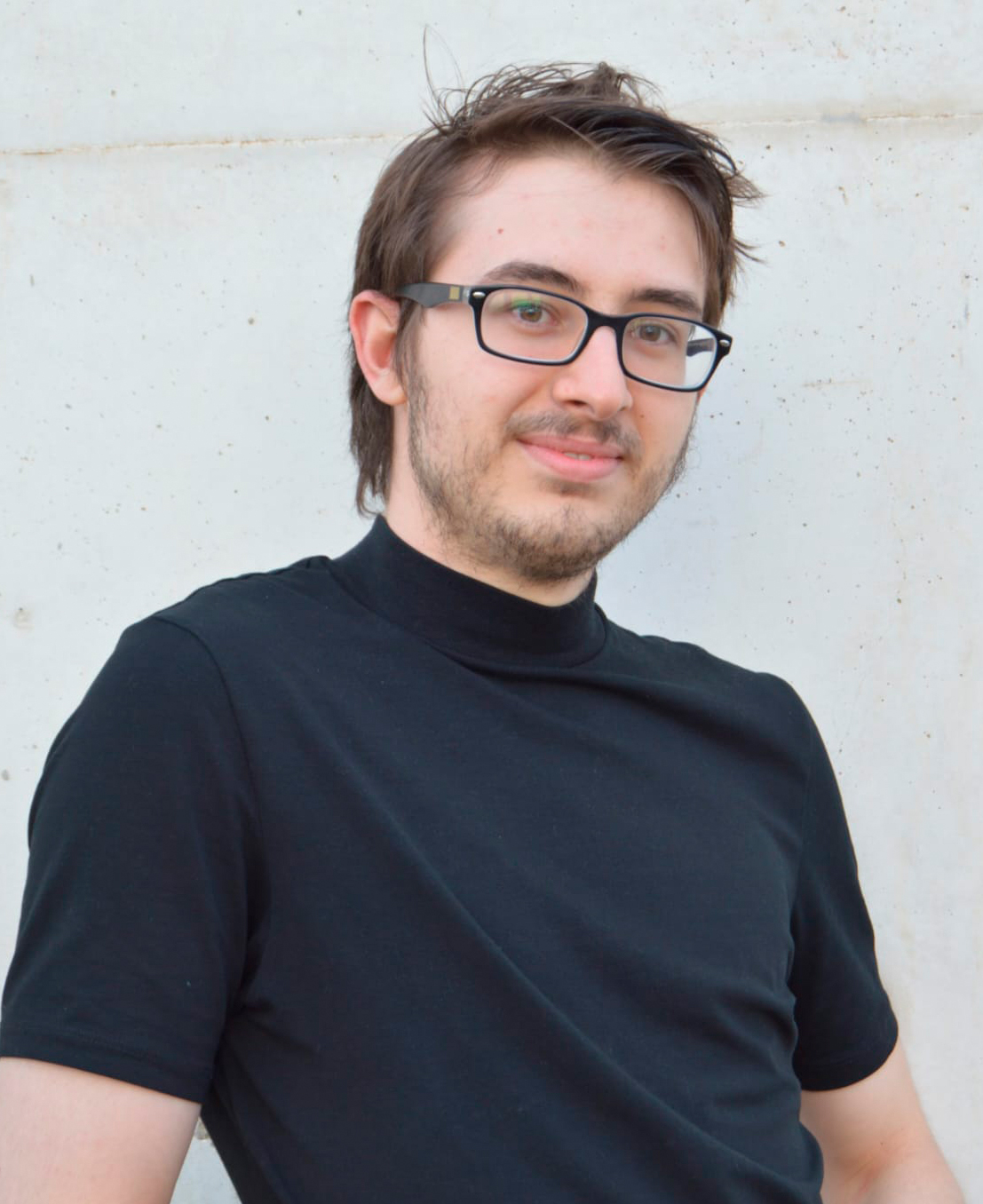
Mario studied a Bachelor’s degree in Biology at the Universidad Autónoma de Madrid (UAM, Madrid, Spain), enrolling subjects oriented to Molecular Biology, Genetics and Cell Biology. Under the supervision of Dr. Mittelbrunn and the PhD student Manuel Montero, he carried out his Bachelor’s final thesis, which focused on describing the alterations in gut homeostasis derived from age-associated chronic inflammation.
Furthermore, in search of acquiring a deeper understanding in the field of intestinal inflammatory diseases, he participated in an Eramus+ programme aimed to identify new therapeutic targets for collagenous colitis under the supervision of Dr. Celia Escudero-Hernández in Kiel (Germany). He later enrolled the Master’s Degree in Molecular Biomedicine at UAM and carried out his Master’s thesis, guided by Dr. Mittelbrunn and Manuel Montero, by designing and evaluating T cell-targeted therapies to combat the immune decline that occurs in aging. He has recently started his PhD seeking to further identify novel therapeutic targets and develop new therapies to combat the immune decline that drives tissue deterioration and age-associated diseases, with a strong focus on microbiota and the intestinal homeostasis.
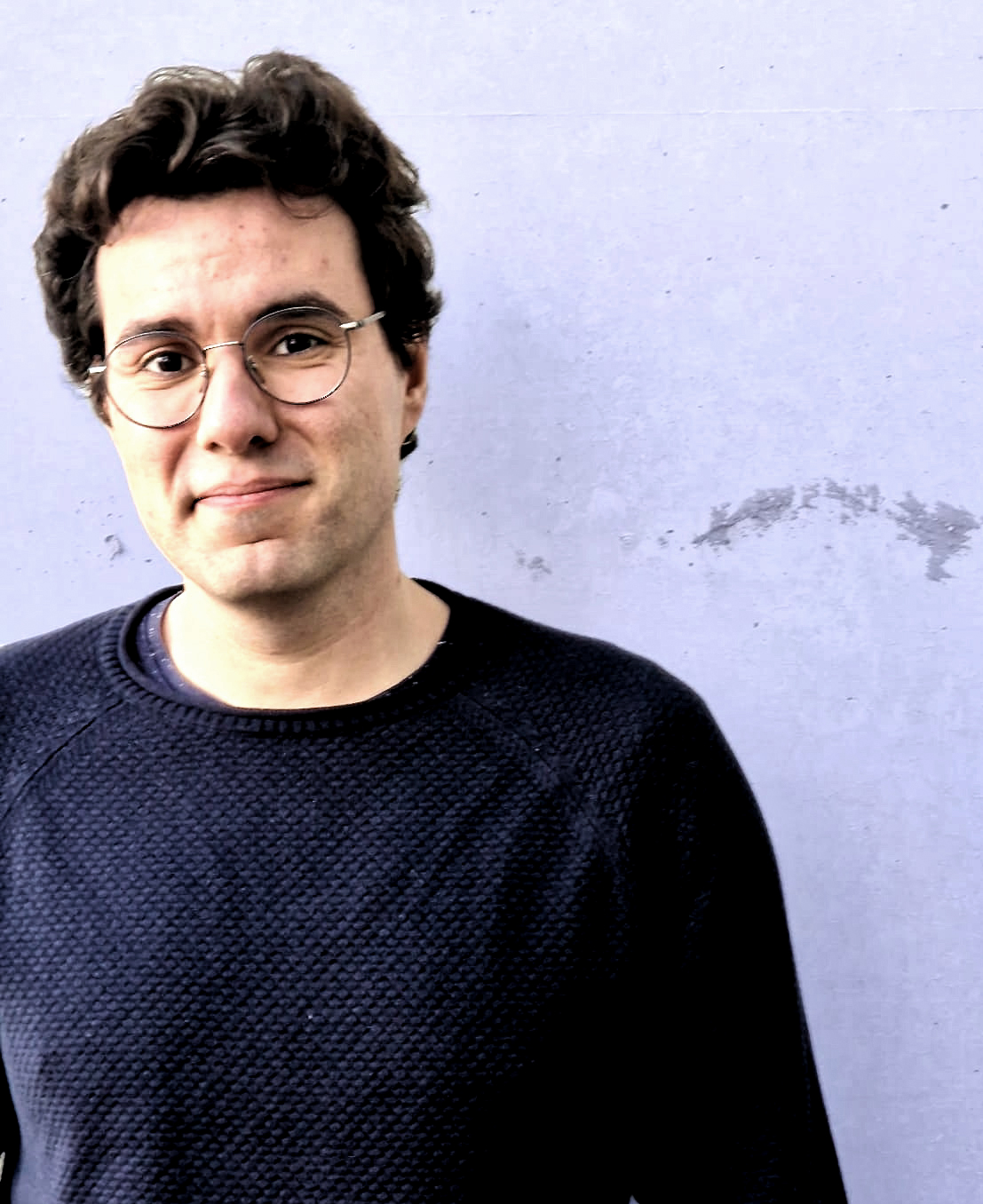
Álvaro, a dedicated professional in the field of biology, earned a Bachelor’s degree in Biology from the Universidad de Alcala. He pursued a Master’s degree in Bioinformatics Applied to Personalized Medicine and Health at the Escuela Nacional de Sanidad – ISCIII. With a passion for utilizing computational tools in biological research, Álvaro has seamlessly transitioned into the role of a Bioinformatician at the Mittelbrunn’s lab. Álvaro employs cutting-edge techniques to analyze complex biological data, contributing to advancements in Immunometabolism research.
Álvaro is adept at integrating biological and computational knowledge, a skill honed through rigorous academic training and practical experience. He continues to stay at the forefront of the rapidly evolving field of bioinformatics, showcasing his commitment to pushing the boundaries of scientific discovery.
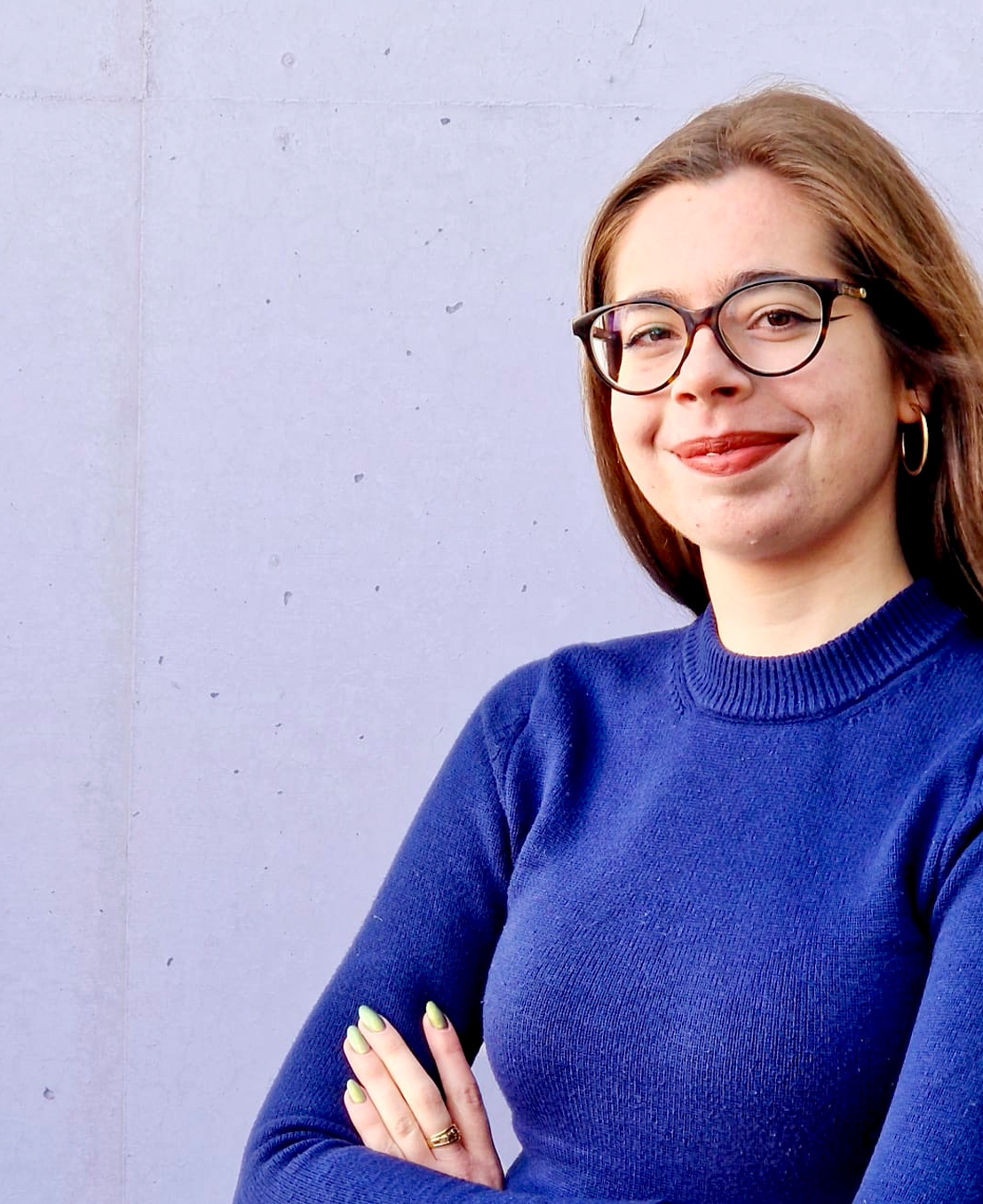
Marta holds an B.Sc. in Biotechnology from Universidad de Zaragoza and a M.Sc. in Neuroscience, with a focus on clinical and molecular approaches, from the Universidad Complutense de Madrid. Throughout both academic final projects, Marta has gained extensive knowledge in neurodegeneration, as well as hands-on experience working with genetically modified models.
As she pursues her doctorate, Marta focuses on the role of senescent immune cells in the brain-gut axis. Preventing gut dysbiosis, inflammaging, and the onset of both age-related and pathological cognitive decline is the goal of this strategic approach.
His current project focuses on investigating the role of the gut microbiota in pathology related to mitochondrial disease, under the supervision of Enrique Gabande and Manuel Montero.
Alice earned her Bachelor’s degree in Molecular Biology from the University of Padua (Italy), where she focused on cell and molecular biology, genetics, and human physiology. During her undergraduate studies, she participated in an Erasmus+ exchange program at the University of Leicester (UK), enhancing her laboratory skills and gaining international experience. Her Bachelor’s thesis centered on regenerative medicine, specifically strategies for tracheal reconstruction.
Currently, Alice is pursuing a Master’s degree in Health Biology at the University of Padua, aiming to deepen her understanding of human health and disease from a molecular and cellular perspective.
As part of her Master’s program, she is conducting a research internship in the Immunometabolism and Inflammation Laboratory. Her research focuses on investigating age-related alterations in T cell function.
